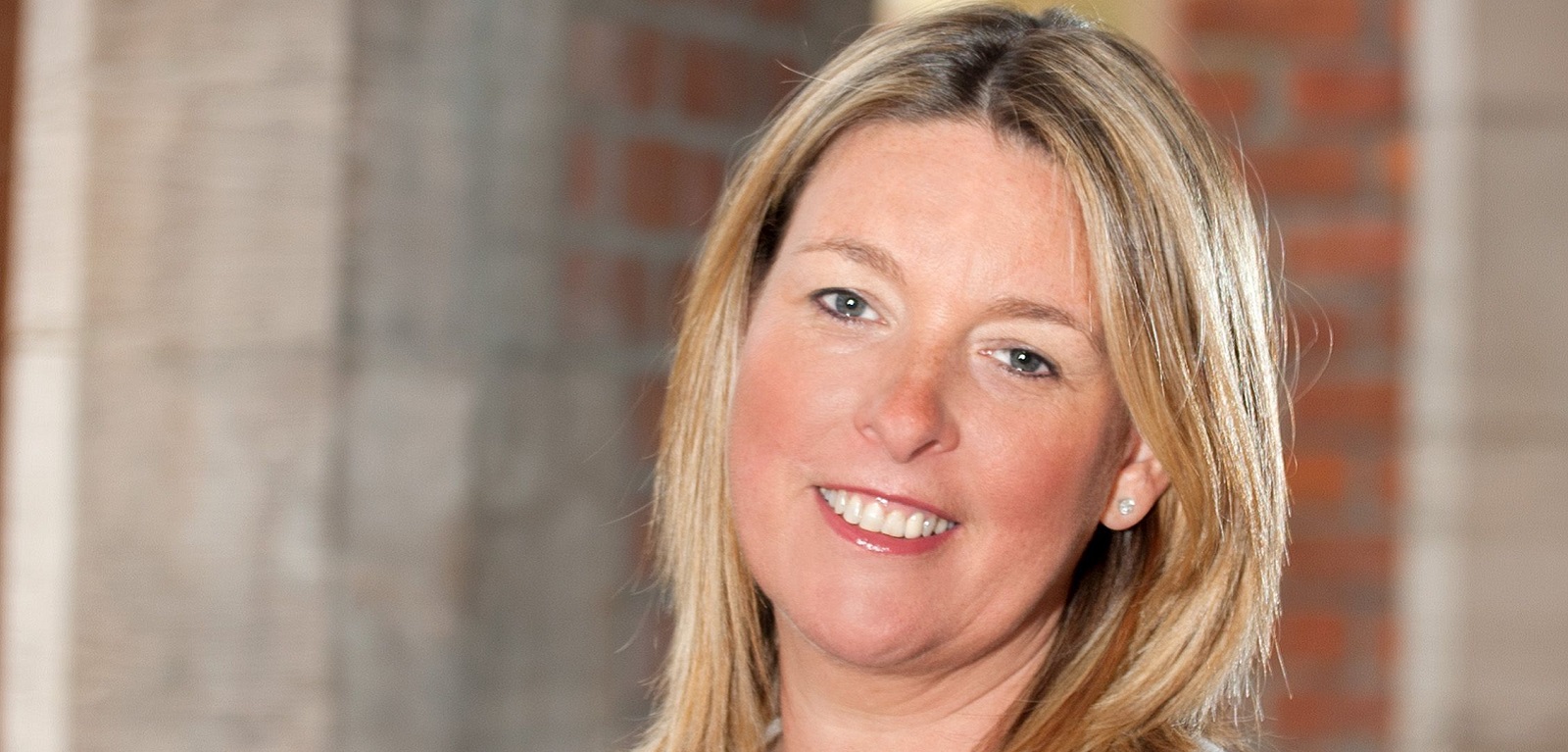Caroline Young
Through the pandemic, Caroline Young, Director of Student Plus, has been providing leadership and direction to her team to ensure the safe operation of the areas within her Directorate, including Queen's Accommodation, which has remained open to provide vital support to those living on campus.
Involved in the University’s Major Incident Team and the various sub-groups focused around the pandemic response, Caroline leads out on Queen’s Contact Tracing function, COVID-19 portal and our call centre to support the PHA’s contact tracing.
What is your role at Queen's?
As the Director of the Student Plus directorate, my role is to lead a diverse team who deliver much of the Campus Life experience in areas such as Accommodation, Campus Food and Drink, Childcare, Eventus, Culture and Arts including the QFT and Queen’s Sport.
How long have you worked here?
I celebrated my 16th work anniversary on 28 February 2021.
What has been your role during the COVID-19 pandemic?
My key role has been to provide clear leadership and direction to the team to ensure the safe operation of the areas within my Directorate, particularly across Student and Staff Accommodation. We have remained open throughout to provide vital support those students who could not go home.
I was also involved in the University’s Major Incident Team and continue to be involved in the various sub-groups focused around pandemic response; for example the Student Experience Sub-Group.
As things progressed during the summer months, I led out on the COVID-19 Management Working Group - the purpose of which was to design and prepare protocols to deal with any outbreak on campus. This quickly evolved into leading out on the Queen’s Contact Tracing function, COVID-19 portal and our call centre to support the PHA’s contact tracing.
Can you outline some of the challenges?
In the early days of the pandemic, despite all of the government messages telling people to “Stay at home”, this was not possible for most staff in Queen’s Accommodation, who deliver essential services and play a vital role in ensuring students and staff living on campus are safe and supported. Reports about the anticipated impact of the virus were constantly in the media and, understandably, there was a lot of anxiety amongst staff who had to come to work to support over 1,200 students who were on site and feeling equally frightened as they were thousands of miles from home.
Like so many, we had to work really quickly to adapt to what was in front of us. There was little time to plan and, as one colleague advised: “We needed to get comfortable being uncomfortable.” I tried to be calm and pragmatic and, as much as possible, reassure the teams that we could get through this together. Above all, my focus was on the needs of our students, many of whom did not have the comfort of their families around them.
Can you share any moments of positivity or joy?
During April, we decided to deliver Easter meals to students in Queen’s Accommodation. Professor Adrienne Scullion, former PVC for AHSS, joined our small team as we delivered three course meals to over 500 students in the middle of a mini heat wave.
Despite it being physically exhausting, we got to talk directly to many students and it was great to see their smiles and gratitude. The sense of positivity provided some brightness during a very uncertain time.
Due to new ways of working necessitated by the public health situation, I also think we have seen a more informal side to each other. I personally have enjoyed connecting and collaborating with colleagues across the University, often on a less formal, more relaxed basis.
What one thing would you like people to learn or remember from the pandemic?
The importance of adapting and constantly pivoting to the changing circumstances; that positivity and energy is infectious and critical in building resilient teams; that, in any crisis, you need to have the right people around you for support and, finally, that there is sun on the horizon.
